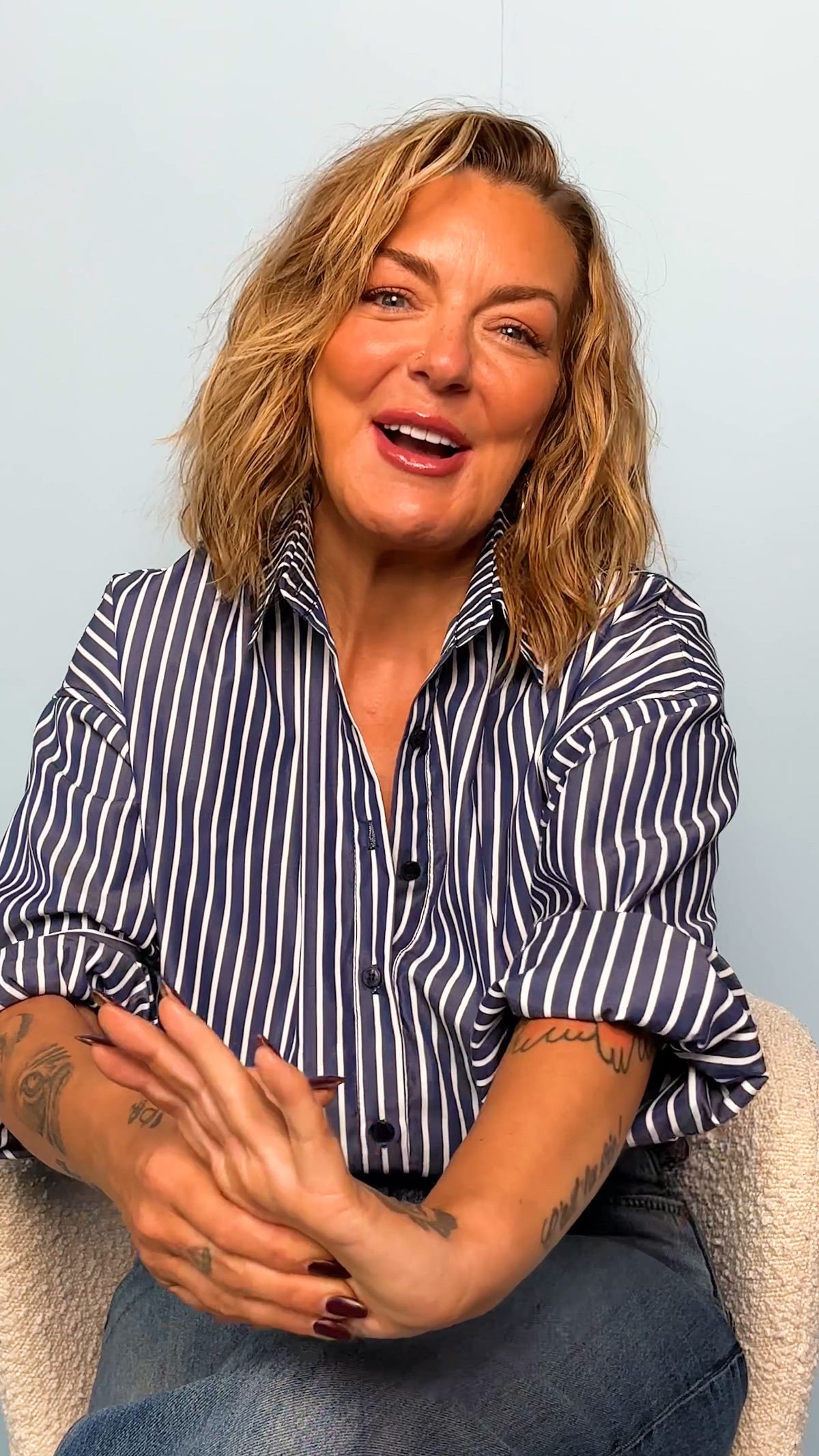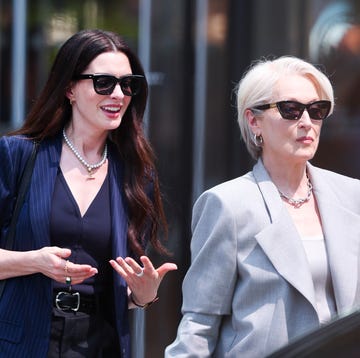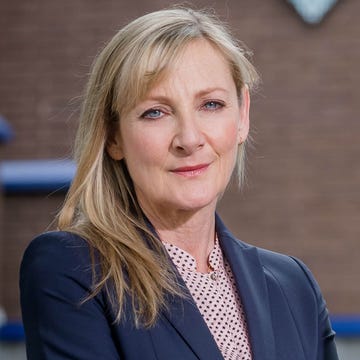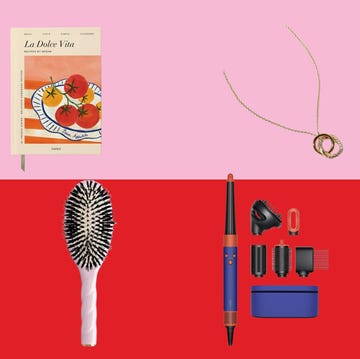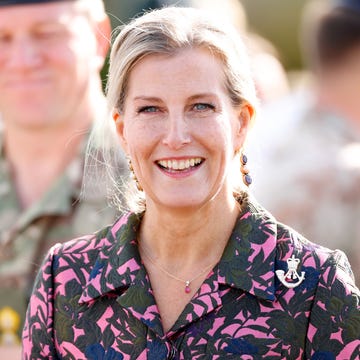You probably won’t have heard this said before, but having a midlife crisis is magnificent, and no one should miss out on it. The time has come to reframe that moment of chaos and consideration for a new generation of women who want to revive and thrive – and are living much longer in better health. We need to reclaim the midlife crisis from madmen with red sports cars, and make the space our own.
What do you automatically think about when you hear the cliché ‘midlife crisis’? Affairs? Menopause? Breakdown? Divorce? Redundancy? Depression? Empty nest? Stress? Loneliness? Lost confidence? Anxiety? Those thoughts are so negative, and changing that outdated narrative and helping women find their superpowers is the reason I’ve spent the last three years researching how to do this much, much better.
Think of me as your crash-test dummy in midlife – I’ve made the mistakes so you don’t have to, and I’ve just written a book about surviving and coming out the other side. I managed to not just have a car crash of a midlife, but a full Thelma-And-Louise-job off the cliff: within a few years, I got divorced, left my job, left my home, lost my mum to Alzheimer’s and had a menopause meltdown. Plus our family dog died after a tick bite.
I managed to not just have a car crash of a midlife, but a full Thelma-And-Louise-job off the cliff
Eventually, I bounced back, helped by taking the new, safer body-identical hormone replacement therapy (HRT), which made a huge difference to my mental health and physical menopause symptoms. Slowly, I tried to heal a lot of the damage I’d caused – and fell in love with a new husband (and a new dog). I also saw a smart, feminist psychotherapist for a year, and begin rethinking not just my story, but the different stories of women around me.
Time to give your relationship an MOT
I began an investigation into how you could make positive change and be prepared. I heard about ‘The Couplepause’, used to describe how a midlife relationship needs renovating. One woman told me: "I love my husband, but sometimes I watch him through the prongs of my dinner fork and imagine him in jail." Of course, midlife is a peak time for divorce, too. The magnificent Margaret Atwood, author of The Handmaid’s Tale, once defined menopause as "a pause while you reconsider men".
Relationships, like cars, should have MOTs and room for improvement as we grow. Couples therapy – or just honest conversations – can renovate a relationship before it rusts.
Rethinking careers
Getting a new job in your 40s, or even half a century into your life, can also be tough, as career-crashing AI and ageism conspire together. A Fawcett Society survey showed that 10% of women leave their jobs due to menopause symptoms, and many go part-time or retire early.
Education and good medical care can help us stay in work, but perhaps this is also a time to try new paths: going to university; reskilling; having a creative renaissance; or going on a year-long road trip in a campervan.
Understanding your body better
Understanding the science of what happens in our bodies and minds as hormones fall is key to our future. One of the key revelations for me is that in our 40s and 50s, around menopause, women’s brains completely rewire as the hormones oestrogen and progesterone pack up: our grey matter or ‘computer processor’ in the brain goes down in the perimenopause – and then makes a comeback.
Our brain’s white matter, which supports neural networking, goes down, too. I only realised this after reading the work of the brilliant scientist Dr Lisa Mosconi in The Menopause Brain. ‘Menopause is a renovation project on the brain,’ she said. We become new versions of ourselves, whether we take hormones or not.
The science explains why 70% of women talk about cat-in-the-washing machine, car-keys-in-the fridge memory loss and brain fog in perimenopause – and I learned that our brains change fuel, too. Oestrogen is no longer feeding glucose, which fuels the brain, and after a while we compensate by pumping more blood to our brains. Our brains are amazingly plastic, but the swap can take a few years to settle, and HRT helps us bypass that.
No wonder we have midlife crises – it’s as though our brains were running on petrol and now they’re working on diesel. Indeed, women sent me their brain fog bloopers for the book. One said: ‘I arrived at the service station and instead of opening the petrol cap, I opened the back door and poured the petrol on to the seat.’ Another confessed: ‘Forgot my own husband’s name at a party.’
We change far more than men do at this crucial time, and the menopause is a metabolic and mental health event that we need to respond to by changing nutrition and muscle-building exercise, as well as replacing hormones for those who want to. We need more self-care and self-compassion, and we are more at risk of diabetes, cardiovascular disease and osteoporosis after menopause. Changing our diet really helps: eating the rainbow in veg, and adding much more protein.
Looking after your gut
I even asked the experts on how best to avoid the ‘Midlife Muffin Top’. Our stomach microbiome – our gut bacteria – changes, which explains why alcohol is harder to process, and we have more of a histamine reaction, too. I stopped drinking (except for the occasional celebration) recently, and after about a month I acclimatised: no hangovers, no morning-after eye-bags, and I felt my life was now in full colour. Sober sex turns out to be fantastic.
There’s so much to discuss, but the overriding theme is that we need to reframe our relationship with time as we live longer and now don’t retire until 67 (or later). Future-of-work expert Avivah Wittenberg-Cox has recategorised our longer 100-year lives into four sections – ‘Growing’ up to 25, ‘Achieving’ up to 50, ‘Becoming’ up to 75, and ‘Harvesting’ to 100. What do we do in the ‘Becoming’ years between 50 and 75? How are we going to change our lives and the world?
So let’s rethink midlife, and the words we use around it. What about: Creative renaissance? Sex drive reboot? Digital detox? Hormonal superpowers? Strength training? Longevity? Renovating friendships? Career change? Wild swimming? Thriving? We’ve all looked after family and colleagues for decades. Now this is our time. Make it magnificent.
Kate Muir is a women’s health campaigner and author of Everything You Need To Know About The Menopause. She produced the Davina McCall menopause documentaries for Channel 4.
How To Have A Magnificent Midlife Crisis by Kate Muir is out now


